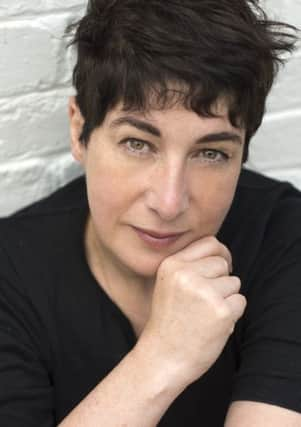Why author Joanne Harris' latest novel proves she's in a class of her own


According to the old adage our schooldays are the best days of our lives – but the reality is frequently much darker and more complicated. It is this complexity that informs the central theme of Joanne Harris’ compelling new novel Different Class, an intricately plotted, twisting, turning, compelling read that explores the past, guilt, perception, memory and the complex and mutable nature of friendship and loyalty.
Set in St Oswald’s Grammar School for Boys, Different Class is the third book in a series of stories that take place in the fictional Yorkshire town of Malbry. Although connected each book is a stand-alone story and, says Harris, it is not necessary to have read the previous two – Gentlemen and Players and Blueyedboy – to understand Different Class.
Advertisement
Hide AdAdvertisement
Hide AdAs the novel opens the school is on the brink of ruin after a series of distressing events that culminated in the murder of one of the students and the loss of the headmaster and several key members of staff. A crisis team has been brought in to save it, led by new Head Johnny Harrington, himself a former pupil at the school – and one who was involved in a previous scandal that ended with a popular teacher being sent to jail. Harris taught for 15 years at Leeds Grammar School for boys, and while she says events in the novel are not based on real-life incidents, she admits that schools are a rich source of material for a writer. “They are full of stories,” she says. “They are tight-knit communities which have an element of both tragedy and farce about them. Schools are a place where people interact, so it is quite a good, productive setting.”
The narrative is split between two voices – eccentric, old-fashioned, increasingly disillusioned Head of Classics Roy Straitley, who is nearing retirement, and an unnamed student whose identity is, teasingly, only revealed towards the end. “Straitley’s voice is very familiar to me, I have known a lot of people like him,” says Harris. “And the other protagonist is a teenage boy, I have known a lot of them too. He is an odd boy and not very likable, but he’s a troubled adolescent who is discovering his own sexuality.” There are also two time-frames – 1981 and 2005 – and Harris moves deftly between the two, gradually and skilfully building up a picture of past misdemeanours, secrets, lies and resentment which all have a bearing on the present. Straitley – a beautifully realised flawed, yet endearing, character, amongst a well-drawn cast – is the bridge between the two as he attempts to uncover the truth, uneasy about the new Head who he suspects was heavily implicated in the events that led to his colleague and friend Harry Clarke’s imprisonment.
Harris says that the Malbry books are among the darkest stories she has ever written, but she doesn’t identify them as crime fiction. “I’d call them psychological thrillers,” she says. “All my books have an element of suspense in them, really. I like writing about people living in small communities and the effect it has on their relationships and how it shapes them. So I don’t see it as a change of genre, it’s a broadening.”
Different Class by Joanne Harris, Doubleday, £18.99.